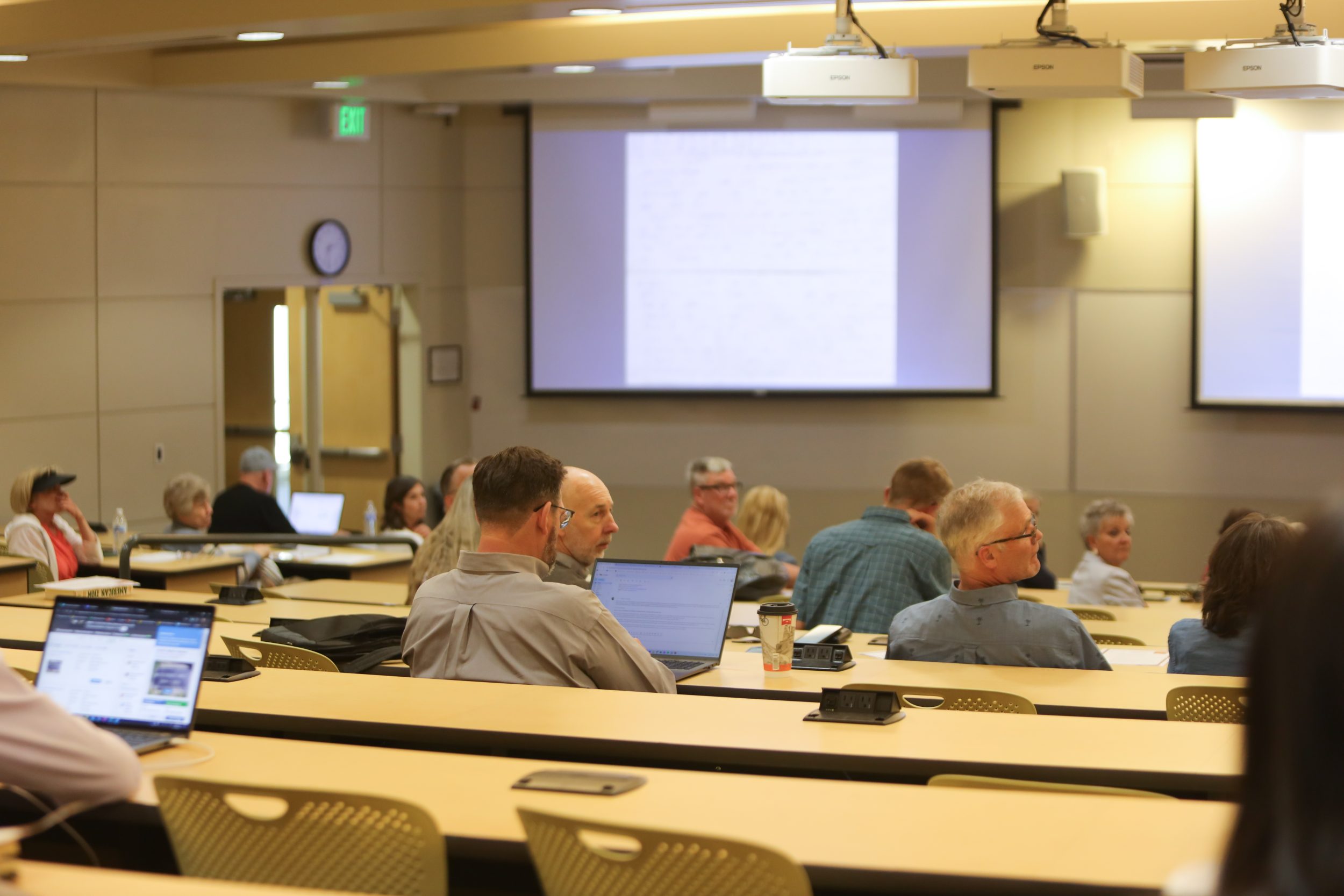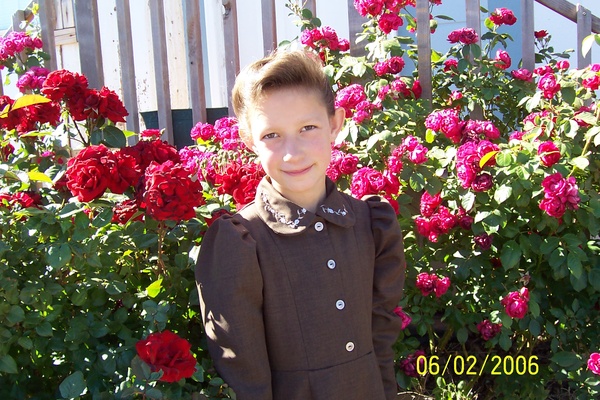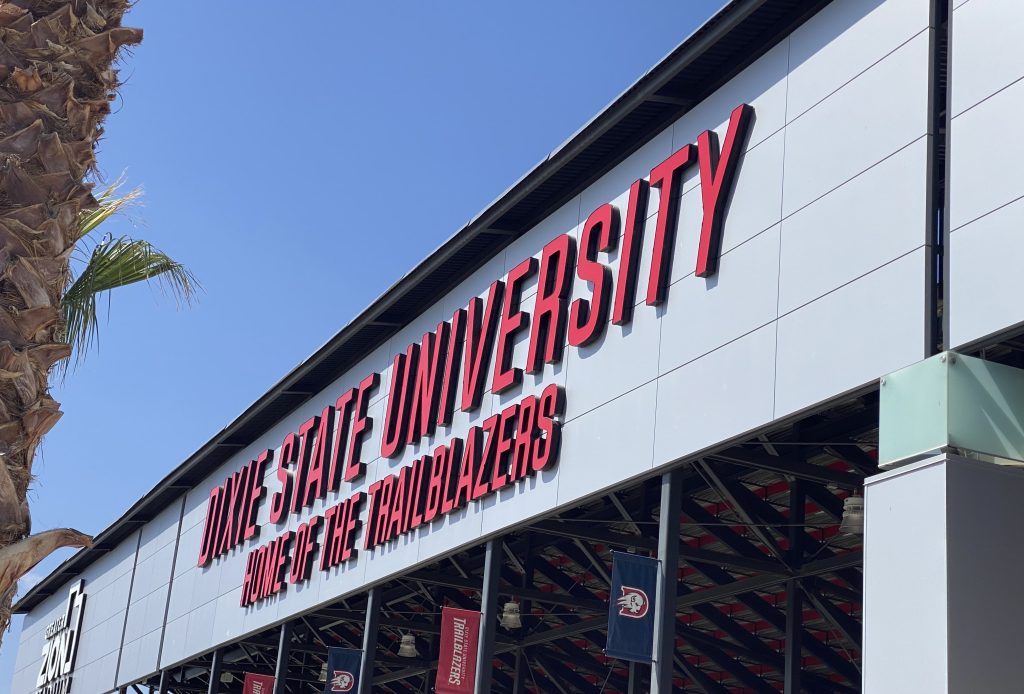Utah Tech University added the 40th conference to the Annual Juanita Brooks Lecture Series at the Russel C. Taylor Health Science Building.
The Juanita Brooks Lecture Series started in 1984 to spark interest in history and provide different perspectives on various events throughout Utah’s history.
As a former professor at Utah Tech, Juanita Brooks was known for her groundbreaking research on heavy topics such as the Mountain Meadows Massacre, all while being a dedicated member of The Church of Jesus Christ of Latter-day Saints. Her research paved the way for exploration into Native American stories long after she died in 1989.
This year’s conference was co-sponsored by the O.C. Tanner Foundation and the Utah Tech Library. The lectures were held Thursday from 7 – 9 p.m. and Friday from 9 a.m. – 4 p.m.
The conference went to Short Creek April 20 to discuss the Fundamentalist Movement with the Mayor of Hildale, Donia Jessup. During the closing speech of the lectures on Friday, the chair speaker for the final block of the conference, Cristina Rosetti, assistant professor of humanities, said Short Creek, a town with different ideologies than most and one that is often a spectacle in the media, is still a town and must be treated with respect.
Many professors and historians all over Utah come to these conferences to educate and inform the community about ideas or teachings that might be biased or potentially inaccurate altogether.
Cassandra Clark, assistant professor of history, who is currently writing a book on the history of insane asylums in the Intermountain West, said she supports conferences like this and how they benefit all students, not just those studying history.
“I would encourage anyone to attend this conference or any history conference overall,” Clark said. “Not only does it help people to make a connection to the past, which is relevant beyond a college class… it connects past to the present as well, so it’s useful in all aspects.”
Clark is not the only historian who shares this belief. Jenny Lund, conference attendee, independent scholar and museum consultant, said, “Understanding the past is crucial, particularly understanding the past of the place where you live is crucial.”
She said conferences like these, even though they are historically based, are made to appeal to the general public. You do not have to be a specific major to attend these lectures.
The separation of lectures in the conference’s program allowed students, professors and other historians alike to show up at various times, allowing them to contribute to the most interesting discussions. The various speakers covered topics such as civil rights in St. George, polygamy, women’s burdens, adoption, abuse and mixed-race identity in the 19th century.
Barbara Jones Brown, author of “Vengeance is Mine, the Mountain Meadows Massacre and its Aftermath” and director of Signature Books Publishing, has a background in studies of 19th and 20th century Utah history. As the former executive director of the Mormon History Association, she said the importance of conferences is to promote networking and allow fellow historians to communicate and reach out to potential collaborators.
“I love going and hearing scholars’ most recent research and hearing their presentations,” Brown said. “I also enjoy listening to conference attendees, like what they are enjoying, what they are interested in [and] seeing what kind of history they are interested in as well.”
The Juanita Brooks History Conference offers a wide variety of lectures that are meant to appeal to the general public, not just here in southern Utah. Promoting active learning and teachings about the rich history this land has to share at these conferences coincides directly with Utah Tech values: academic distinction, student learning and success, equity and inclusion and collaborative culture.




